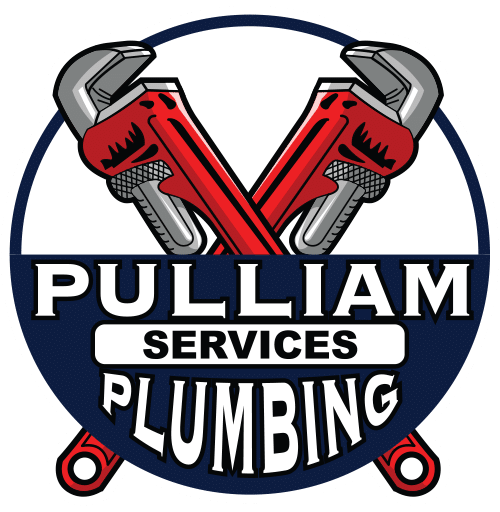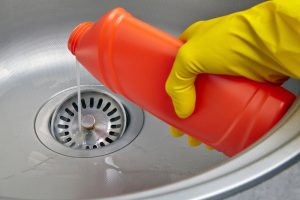Clogged drains can disrupt daily routines and lead to frustrating downtime in your home. Whether it’s a slow-draining sink or a completely blocked pipe, dealing with clogs is something most homeowners face at some point. Fortunately, many clogs can be handled without expert intervention.
Understanding what causes clogs helps prevent future build-ups. Common culprits like hair, grease, and food particles often find their way into drains, eventually causing blockages. By identifying these sources, homeowners can take steps to keep their drains clear.
Simple do-it-yourself methods can effectively manage minor clogs. From basic tools to common household items, there are various ways to tackle these issues head-on. Knowing which method to use and when can make a big difference in maintaining a clog-free home. Let’s explore some easy ways to unclog your drains without too much hassle.
Common Causes of Drain Clogs and How to Prevent Them
Clogs can form in any drain, from sinks to showers. Identifying the common causes helps prevent them. One major culprit is hair, which easily tangles and accumulates in bathroom drains. Hair combines with soap and other residues, forming stubborn blockages. Installing a drain cover catches hair before it goes down the drain.
Grease is another frequent cause of clogs, particularly in kitchen sinks. As it cools, grease hardens and sticks to pipe interiors, leading to blockages. To avoid this, never pour grease down the sink. Instead, dispose of it in a container and throw it in the trash. Running hot water and a bit of dish soap down the sink regularly can help break down any oils that do sneak in.
Food scraps contribute significantly to kitchen drain problems. Even if you use a garbage disposal, fibrous foods like celery or potato peels can create issues. Scrape plates into the trash before rinsing them in the sink, and always run cold water when using the disposal.
In addition to these, foreign objects such as small toys or bottle caps can find their way into drains, causing clogs. Make sure drain stoppers or guards are in place to prevent accidental blockages. Regular maintenance and mindful habits can keep your drains flowing freely.
Simple DIY Methods to Clear Minor Clogs
Tackling minor clogs at home doesn’t have to be complicated. With a few easy methods, you can resolve many common blockages without professional help. Here are some simple DIY techniques to try:
1. Boiling Water: For grease or soap clogs, pour boiling water slowly down the drain. This can dissolve and wash away the buildup. Repeat if necessary, allowing each pour to work before adding more water.
2. Baking Soda and Vinegar: Combine 1/3 cup of baking soda and 1/3 cup of vinegar. The mixture will fizz. Pour it quickly down the clogged drain. This chemical reaction helps break down stubborn debris. Let it sit for an hour, then flush with boiling water.
3. Salt and Baking Soda: Mix 1/2 cup of each and pour it into the drain. Let it sit overnight and flush with boiling water in the morning. This abrasive mixture can dislodge the clog.
4. Dish Soap and Hot Water: For clogs caused by grease, combine dish soap and hot water. The soap emulsifies the grease, and the hot water helps to flush it through.
5. Plunger: Use a plunger on drains with standing water, such as a sink or bathtub. Create a tight seal and plunge vigorously to push the clog through the pipes.
These methods offer a straightforward approach to keeping your drains clear. They require minimal tools and use everyday household items, making them convenient and effective steps in your drain maintenance routine.
When to Use a Plumber’s Snake or Plunger
Sometimes, a simple plunge isn’t enough to clear a stubborn clog. This is where tools like a plumber’s snake or a heavy-duty plunger come in handy. These tools can reach deeper clogs that baking soda or boiling water can’t tackle.
A plunger works best when there’s enough water to cover the rubber part. To use it effectively, place it over the drain and push down firmly, then pull up quickly. This action creates suction that can dislodge the clog. Use a plunger for sinks, bathtubs, and even toilets to clear blockages caused by hair, paper, or other soft materials.
A plumber’s snake is a flexible, coiled tool that extends down the drain to break up clogs. To use it, insert the snake into the drain and crank the handle to push it deeper. When you feel resistance, it’s likely hitting the clog. Continue cranking to pull apart the clog, then retract the snake and flush the pipe with water.
These tools are useful when other DIY methods fail. They allow more control over the cleaning process and can reach clogs that are further down the pipe. However, use care when handling a plumber’s snake, as improper use can damage pipes.
Recognizing When It’s Time to Call a Professional
Despite your best efforts, some clogs require professional expertise. Knowing when to call for help can save you from bigger issues later. If water backs up in multiple drains or you hear gurgling noises, it might be a sign of a severe blockage deep in your system.
Persistent slow drains, despite trying various methods, indicate a more significant issue. This could be due to tree roots, pipe corrosion, or a buildup that’s too far down the line for DIY tools. Also, if you frequently deal with clogs, it might be time to seek a professional evaluation.
Foul odors coming from your drains can signal trapped organic matter or issues like sewer gas. These problems should be addressed promptly to avoid health risks or further damage. Professionals have the equipment to inspect and clear these clogs without causing harm to your pipes.
Another sign to call a professional is water pooling around fixtures or slow drainage during heavy use. This could point to a damaged sewer line or faulty plumbing, which requires more than basic tools to fix.
Conclusion
Maintaining free-flowing drains is achievable with a mix of preventive measures and simple fixes. By understanding what causes clogs and knowing how to address them, you can keep your plumbing in good condition. However, recognizing when a clog is beyond your capabilities is just as crucial.
If you encounter persistent issues or suspect a deeper problem within your pipes, don’t hesitate to reach out for professional help. Pulliam Plumbing is here to assist with any difficult or recurring drain problems. Our experienced team is equipped to handle everything from stubborn clogs to complex plumbing issues. Contact us today to schedule a service with the highest-rated plumbers in Boerne & Fair Oaks, Texas.




